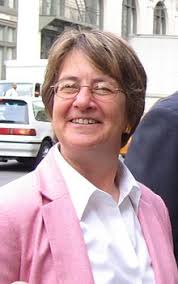New York State will now allow gestational surrogates to carry babies for other parents. Here’s why they do it.
In 1995, Lisa Wippler, having recently retired from the Marines, moved with her husband and two young sons to Oceanside, Calif., and was contemplating her next chapter in life. The answer came while lying in bed one night, reading an article about infertility.
“I had no idea how many couples out there needed help,” she said. Inspired, she sought out a local support group for women who had served as surrogates to help those who can’t have children on their own start families. “It was this amazing circle of women,” said Ms. Wippler, who is now 49. “All talking about their journeys and their stories.”
Last year, Ms. Wippler — by this point a three-time surrogate herself — was part of a delegation of surrogacy advocates who traveled to Albany, where she had the opportunity to share her story with lawmakers considering whether to legalize the practice in New York State. She was joined by the first woman she carried a child for, in 1996, who spoke with state legislators as well.
“I had never heard her talk so openly about her struggles and the impact this all had on her,” Ms. Wippler said. “I was so proud — it really had an impact on me.”
In her advocacy work, Ms. Wippler said, she has been befuddled to hear the arguments put forward by opponents — some of whom contend the surrogacy industry preys on poor and vulnerable women.
“I’m a retired Marine,” she said. “I can guarantee you no one coerced me.”
Starting Monday, after a protracted battle in the state that garnered star power and attention on both sides, New York joins most other states in the nation in permitting some form of compensated gestational surrogacy — when a woman carries a child, to whom she is not biologically related, for an individual or couple in exchange for a fee. (Only Michigan and Louisiana will continue to criminalize gestational surrogacy, as New York did, but other states still limit surrogacy contracts in some form.)
While the United States remains one of the few countries where gestational surrogacy is legal, and widely practiced, it continues to be a source of heated debate. Often missing from the conversation, however, are perspectives of women like Ms. Wippler — and the varied, sometimes deeply personal, reasons that compel them to become surrogates.
NYTimes.com by david Dodge, February 15, 2021
Click here to read the entire article.
The post Meet the Women Who Become Surrogates appeared first on Time For Families.
Source: Time for Families




